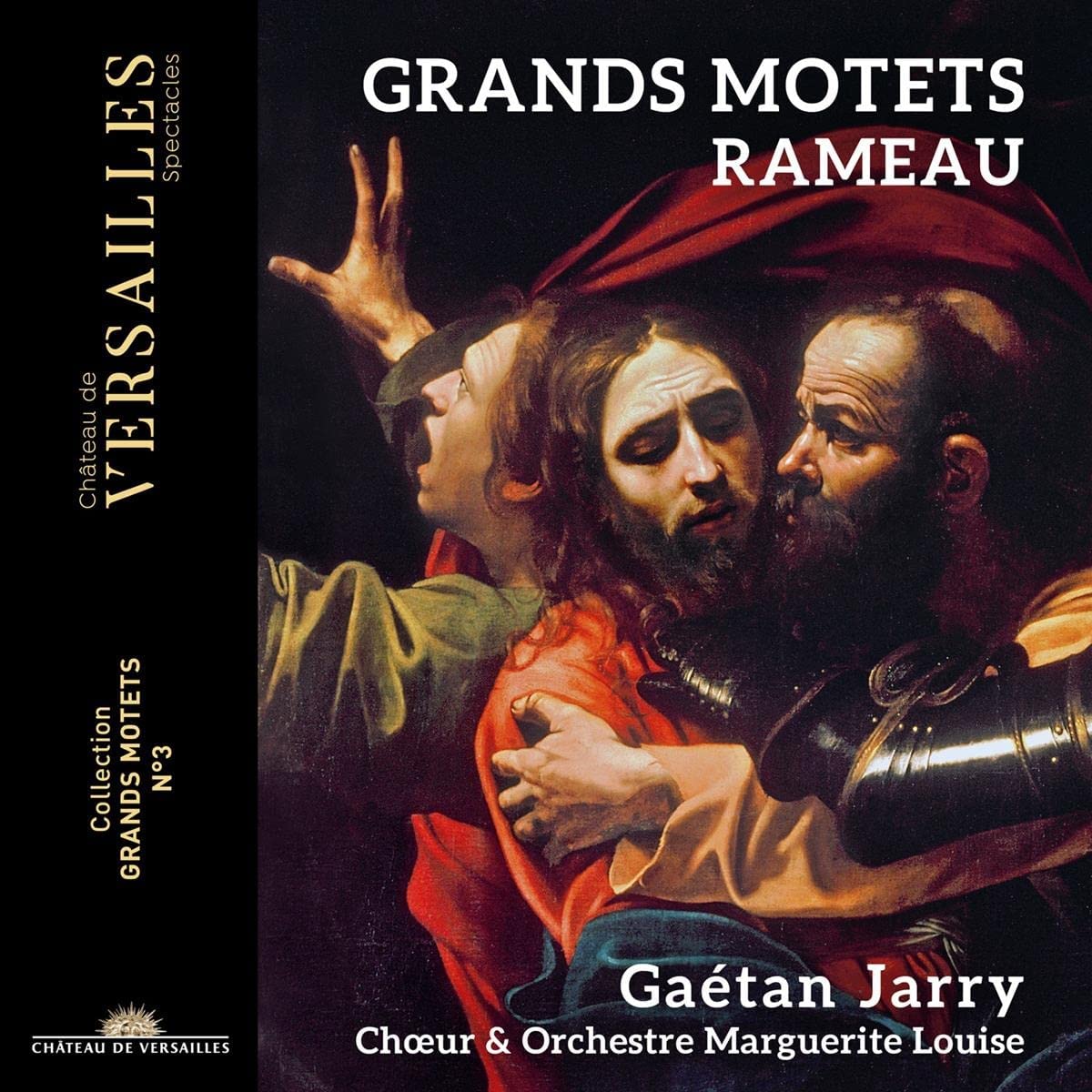Choeur & Orchestre Marguerite Louise, Gaétan Jarry
77:43
Château de Versailles Spectacles CVS 5052
Click HERE to buy this recording on amazon.co.uk
[These sponsored links are the only way to keep this site free]
Such is Rameau’s renown as an opera composer that today we have a forgivable tendency to forget that the long period of his creative life before the sensational appearance in 1733 of Hippolyte et Aricie was devoted near exclusively to sacred music. As Gaétan Jarry notes in a long and helpful note, Rameau was organist of ‘at least a dozen churches’, though his observation that not a single organ work of Rameau’s has come down to us can almost certainly be explained in one word: extemporisation. Such was its importance as a fundamental of French organ technique that unless someone was on hand to transcribe it such improvisation belonged near exclusively to the moment.
Unlike Lully and Delalande, Rameau’s output of the major sacred form of the Baroque in France, the grand motet, is small, just four examples considered to be authentic being extant (a fifth, Diligam te has been dismissed from the canon). All four are included on the present disc for the first time. Of these Laboravi clamans, a setting of verse 3 of Psalm 69, is a tiny work (just 73 bars) of uninterrupted counterpoint, its long melismatic lines reflecting its opening line, ‘I am weary of my crying’. The other three motets are on a considerably larger scale, alternating contrasted solo and solo ensemble verses with those for full chorus. Each has its own distinctive character. Quam dilecta tabernacula (‘O how amiable are thy dwellings’, a setting of Psalm 84 (83)), for example, opens with tranquil, luminescent flutes and a soprano solo, sung with vernal freshness by the excellent Maïlys de Villoutreys. It’s a mood broadly sustained throughout the work, a brief excursion for a joyous triple-time contrapuntal chorus at the words, ‘My heart and my flesh rejoice…’ being an exception. In convertendo (‘They that put their trust in the Lord’, Psalm 125 (126) on the other hand has a text that juxtaposes the pain of captivity in Babylon with joy at the prospect of release. In keeping with such ambiguity, it contrasts the exuberant joy of ‘Magnificavit Dominus’ a florid duet for soprano and bass (Villoutreys again superb with the fine bass David Witczak), with, for example, the final movements, a madrigalian solo trio, ‘Qui seminant’ (They that sow in tears) followed by a magnificent chorus that opens with astounding chromatic harmony, a passage as great as anything in the choral works of Handel or Bach. The final and longest motet, Deus noster refugium (God is our refuge, Psalm 46 (45)) has a text filled with vivid imagery that was a gift to a man shortly to become one of the great dramatic composers of the age. One notes among many examples the shuddering strings at ‘the earth is moved’ and the thrilling, surging impetus of the choral writing at ‘The waters roared out …’
As already intimated the performances are outstanding, with the chorus aided by the acoustic of the Chapelle Royale in Versailles achieving a wonderful breadth and depth. All six soloists are first-rate, with special plaudits once again going to haute-contre Mathias Vidal. Jarry’s outstanding ensemble can today be considered among the best of the Baroque ensembles in a country more richly endowed with them than any other.
Brian Robins
